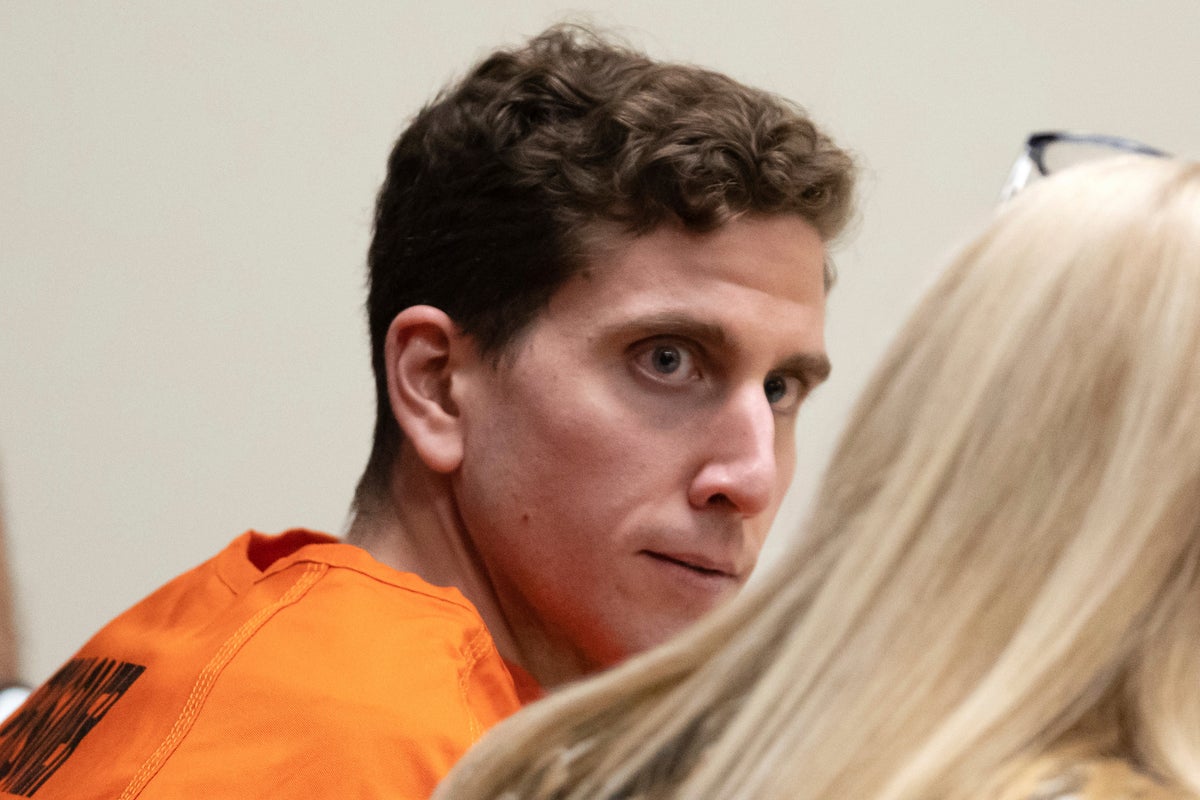
An Idaho judge has denied a second attempt by Bryan Kohberger’s attorneys to dismiss the indictment against him in the murders of four University of Idaho students last year.
Judge John C Judge said that while some of the defence’s arguments were “historically interesting and creative”, those arguments “do not overturn” Idaho courts’ interpretation of the statute, case law and criminal rules, according to the new documents filed Friday, and posted to the docket on Monday.
Mr Kohberger’s defence team filed the motions to have the grand jury indictment thrown out based on a biased grand jury, inadmissible evidence, lack of sufficient evidence, and prosecutorial misconduct.
The former criminology grad student is accused of killing Kaylee Goncalves, 21, Madison Mogen, 21, Xana Kernodle, 20, and Ethan Chapin, 20 – who were found dead in an off-campus home in Moscow, Idaho, on 13 November 2022.
Investigators pieced together DNA evidence, cellphone data and surveillance video that they say links Mr Kohberger to the slayings.
In October, the judge denied the defence team’s motion to dismiss based on claims of inaccurate instructions to the grand jury. He had stated that he would deny this request, with a written opinion to follow.
Bryan Kohberger is accused of killing four University of Idaho students in 2022— (AP)
In that written opinion, Judge Judge wrote the team “failed to successfully challenge the indictment” on those grounds.
“Kohberger was indicted by an impartial grand jury who had sufficient admissible evidence to find probable cause to believe Kohberger committed the crimes alleged by the State,” he continued. “Further, the State did not engage in prosecutorial misconduct in presenting their case to the jury.”
Mr Kohberger’s lawyers had also argued that the grand jury was given inaccurate instructions and that they used the wrong standard of proof.
Ethan Chapin, 20, Madison Mogen, 21, Xana Kernodle, 20, and Kaylee Goncalves, 21, were killed in November 2022— (Instagram)
They claimed the standard of “beyond a reasonable doubt” should have been used, rather than “probable cause.”
But the judge wrote in his written opinion that there is “no dispute” that the correct standard was used here – which was probable cause.
“The grand jury is not a trial jury,” he wrote. “Its function is to screen whether or not there is sufficient evidence to proceed to trial.”
The decision comes days after Mr Kohberger’s defence team accessed the off-campus home in Moscow where the murders occurred so they could gather photos, measurements and other documentation before the house is set to be demolished on 28 December.
The university hopes that removing the house will reduce the impact the deaths have had on the many students who live nearby, The Associated Press reported.
“It is a grim reminder of the heinous act that took place there,” President Scott Green said. “While we appreciate the emotional connection some family members of the victims may have to this house, it is time for its removal and to allow the collective healing of our community to continue.”
The house in Moscow, Idaho is set to be demolished on 28 December— (Getty Images)
Mr Kohberger, a graduate student at Washington State University, was arrested at his parents’ home in Pennsylvania, on 30 December 2022.
In May, Mr Kohberger declined to enter a plea at his arraignment, forcing the judge to enter not-guilty pleas on his behalf for four charges of first-degree murder and another of felony burglary.
The trial was initially scheduled for last October but it was indefinitely postponed after Mr Kohberger waived his right to a speedy trial.
Latah County Prosecutor Bill Thompson has said he intends to seek the death penalty
A new trial date has not been set.







